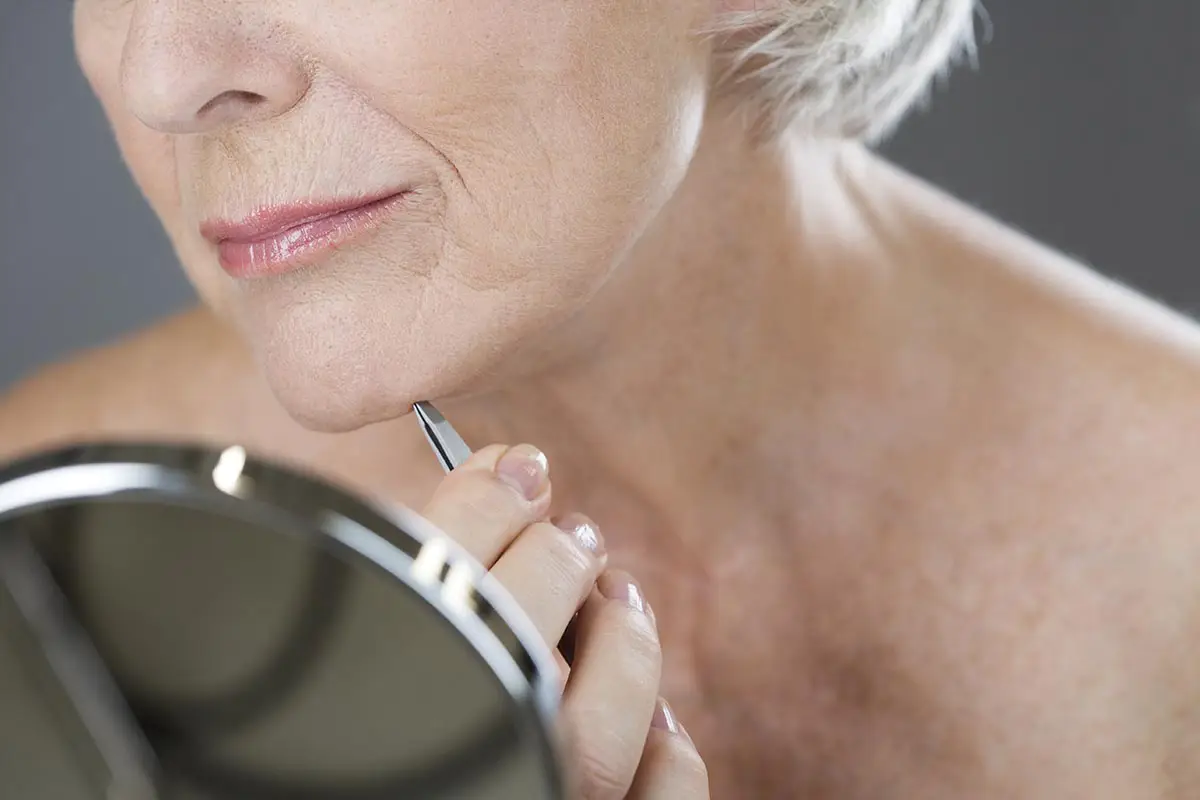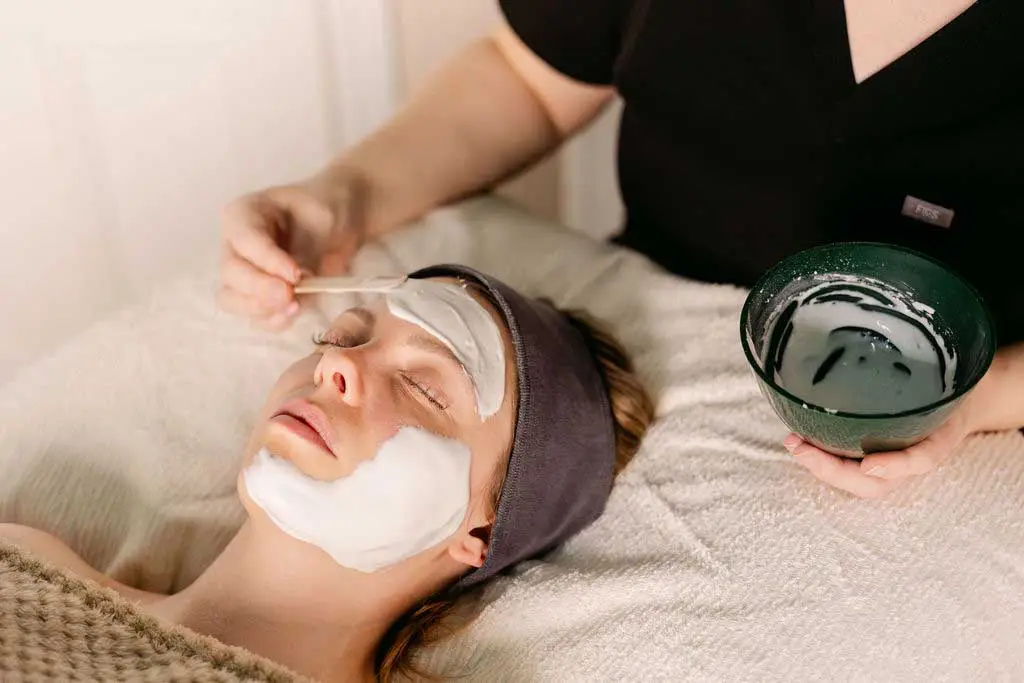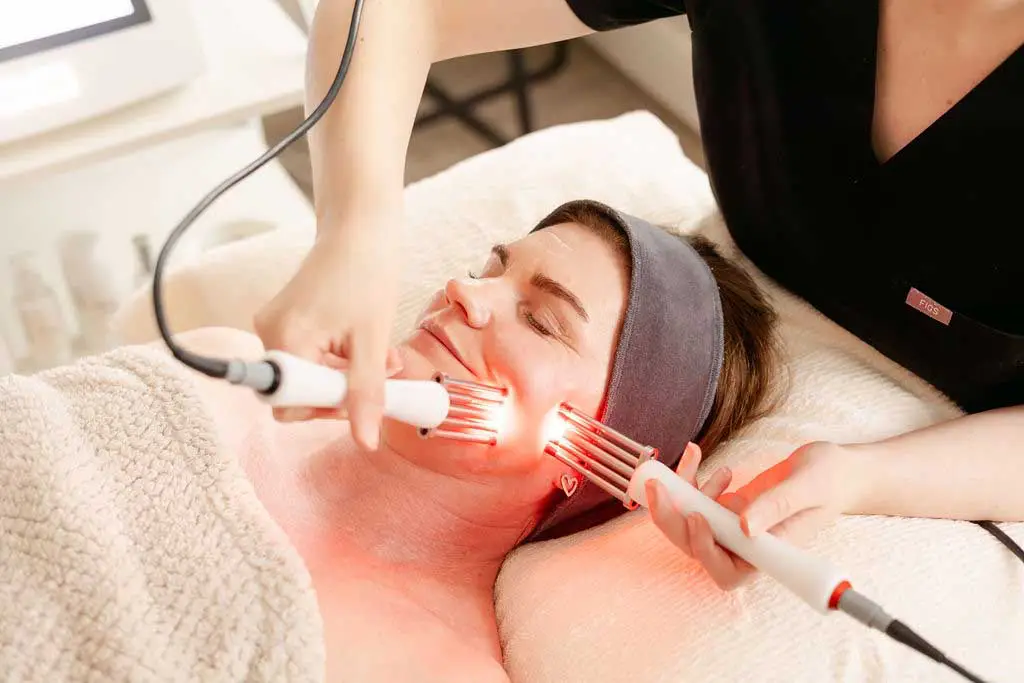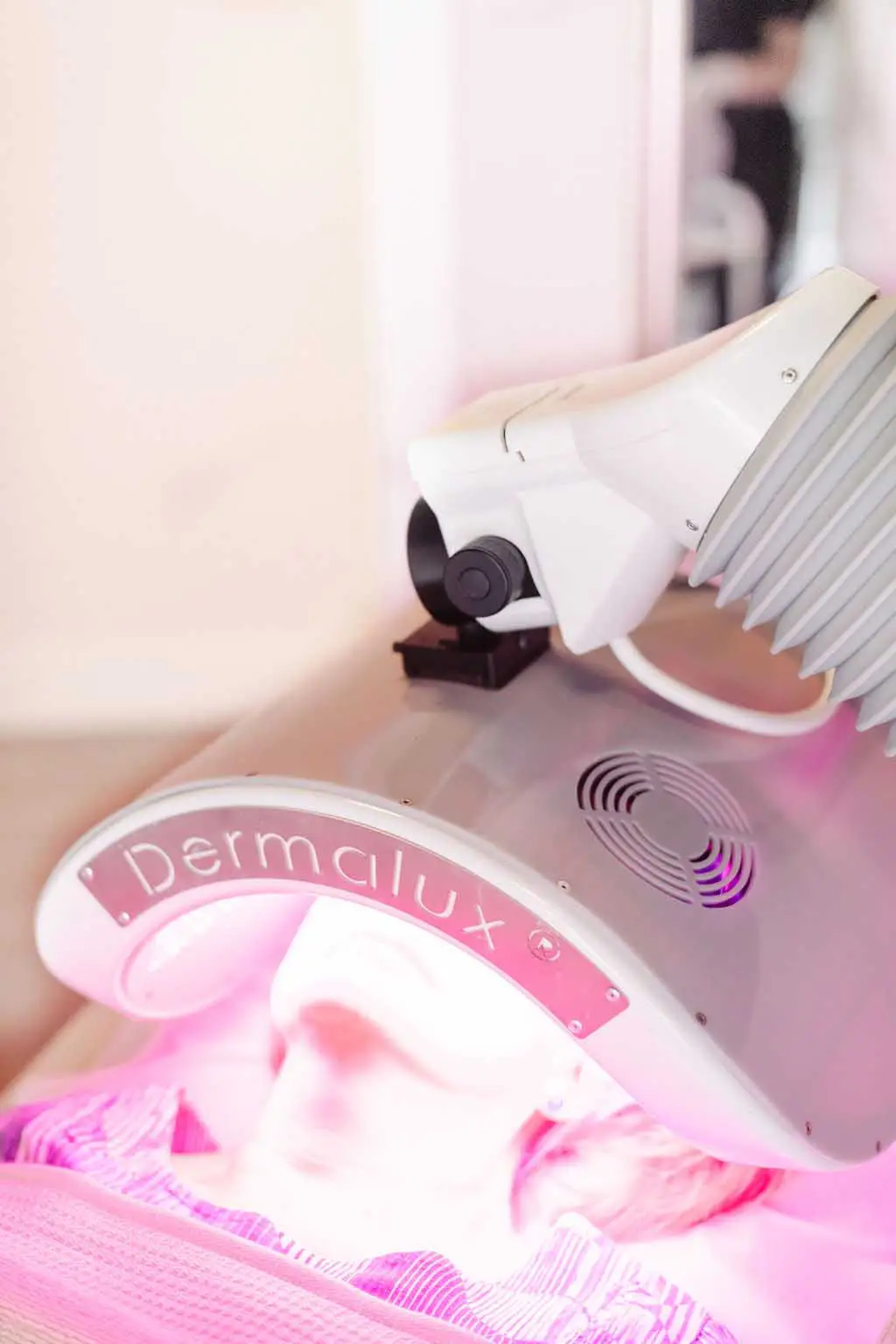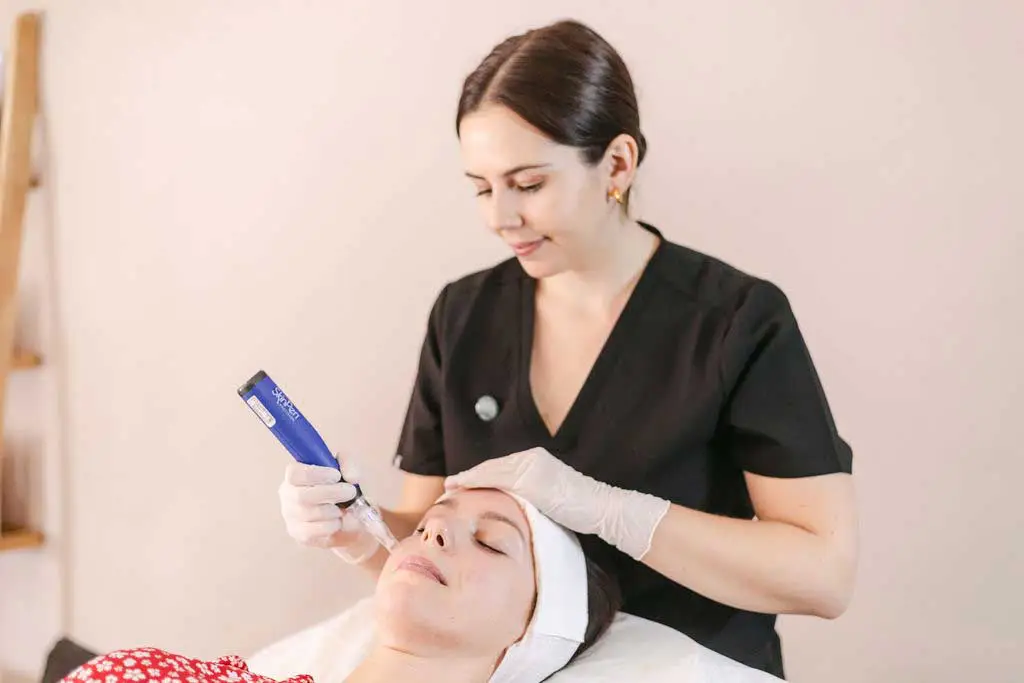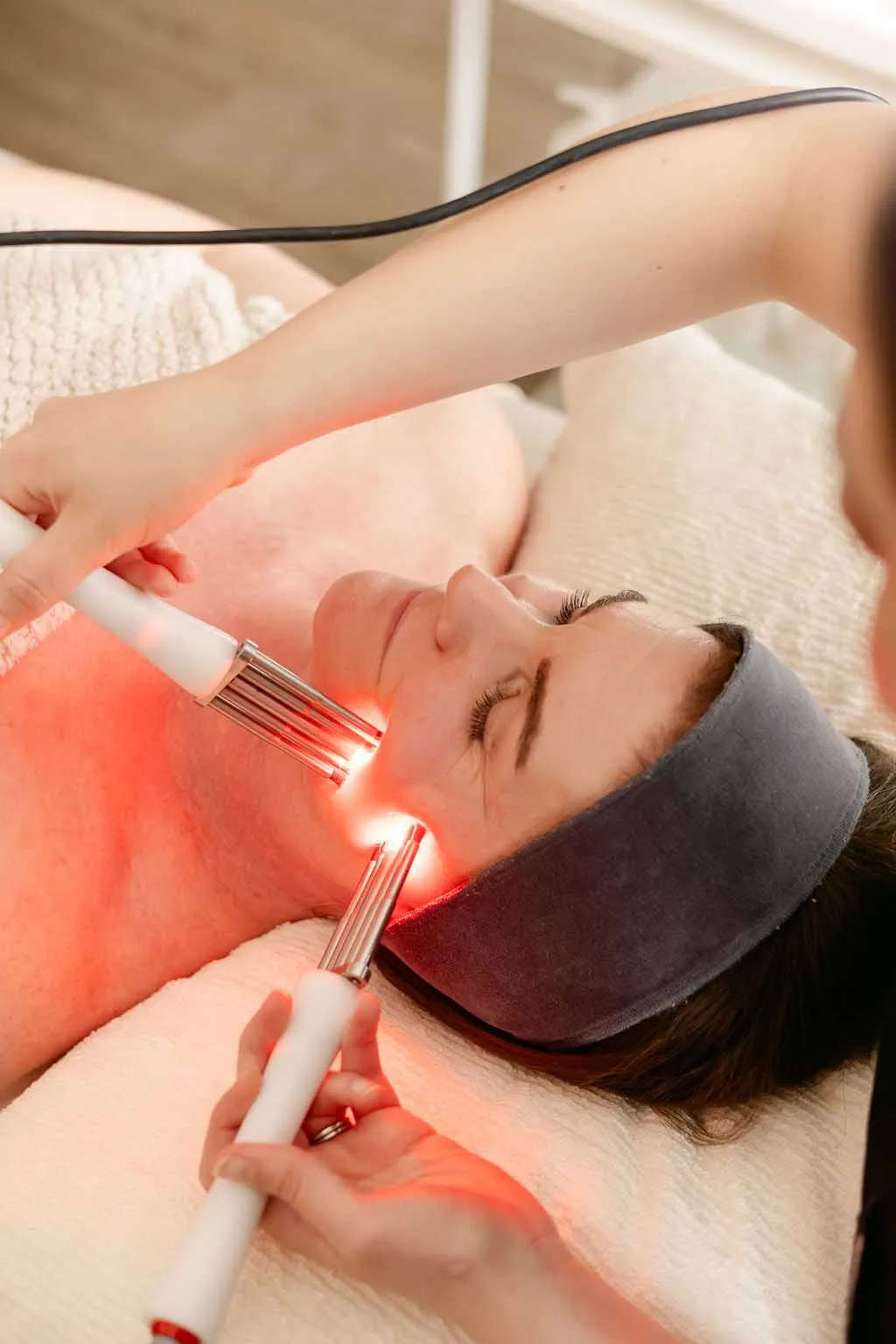What is menopause-related hair growth?
During menopause, the body undergoes significant hormonal changes that can lead to unwanted facial and body hair growth, particularly in areas like the chin, upper lip, and jawline.
This occurs due to a decrease in estrogen levels and a relative increase in androgens (male hormones). As estrogen levels drop, androgens become more dominant, stimulating hair growth in areas typically associated with male-pattern hair. For many women, this can be distressing, as it can lead to coarser, thicker hair appearing where it wasn’t before.
While menopause-related hair growth is natural and common, it can be bothersome and affect self-esteem. It’s important to know that you’re not alone, and there are ways to manage and reduce unwanted hair growth during this time.
Why does menopause cause hair growth?
As we age and enter menopause, the shift in hormone levels leads to increased levels of androgens (male hormones), which stimulate hair follicles in areas where men typically grow facial hair. These hormonal changes can cause dark, coarse hair to grow on the chin, upper lip, neck, and jawline, which can be difficult to manage.
- Estrogen Decline: As estrogen levels decline, the skin’s structure changes, and the balance between estrogen and testosterone shifts. This can lead to increased facial hair growth, along with thinning hair on the scalp (a condition called androgenic alopecia).
- Increased Androgens: The rise in androgens during menopause can stimulate hair growth in areas like the face, chest, and abdomen. This is a natural part of the hormonal shift, but it can be managed with the right treatments.
What can you do right now to help?
Managing menopause-related hair growth is a long-term process, but there are a few things you can do right now to help reduce the impact:
- Hormonal Regulation: If you haven’t already, speak with your GP or specialist about hormonal therapies such as HRT (Hormone Replacement Therapy) or anti-androgens (like spironolactone), which can help regulate hormone levels and reduce hair growth.
- Diet and Lifestyle: A healthy, balanced diet, combined with regular exercise and stress management, can help balance hormones and support your overall wellbeing. Avoiding high-sugar and processed foods may help to reduce insulin resistance and hormonal fluctuations.
- Track Your Hormonal Changes: If you notice an increase in unwanted facial hair around the time of menopause, it could be tied to hormonal shifts. Keeping track of when the hair growth is more prominent could help identify specific patterns and triggers.
How we can help at Elite Skin Studio
At Elite Skin Studio, we offer laser hair removal and electrolysis as effective, long-term solutions for menopause-related facial hair growth. We understand that this is a sensitive issue and are here to support you with personalised treatments to manage it:
- Laser Hair Removal: For dark facial hair, laser hair removal is an excellent choice. Our Cynosure Elite+ laser is designed to target the pigment in the hair, damaging the follicle and preventing regrowth. This treatment is ideal for reducing hair growth on the chin, upper lip, or jawline. It’s a quick, non-invasive solution that provides long-lasting results.
- Electrolysis: If your facial hair is blonde, grey, or light, electrolysis is the ideal treatment. This method uses a tiny electrical current to permanently destroy the hair follicle, ensuring long-term results even for lighter or finer hair. It’s great for small, targeted areas and offers a permanent solution for unwanted hair.
Both treatments require a consultation to ensure the best course of action for your hair type and concerns.
What are the limitations of menopause-related hair growth treatment?
While laser hair removal and electrolysis can greatly reduce unwanted hair, it’s important to note that menopause is a hormonal condition.
The changes in hormone levels may cause new hair growth even after treatments, so maintenance sessions may be needed to manage regrowth.


